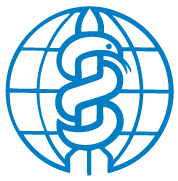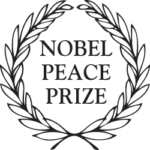Highlights from IPPNW’s first 40 years working for the abolition of nuclear weapons and the prevention of armed violence.
1980s
- Drs. Bernard Lown, James Muller, Eric Chivian and Herb Abrams from the US meet in Geneva with Drs. Eugueni Chazov, Leonid Ilyin, and Mikhail Kuzin from the Soviet Union and agree to organize an international physicians movement to combat the nuclear threat.
- IPPNW’s First World Congress is held in Airlie, Virginia, and is attended by 80 physicians from 12 countries.
- Soviet and U.S. physicians from IPPNW appear on Soviet television for an unprecedented live, unedited discussion on the consequences of nuclear war. Seen by 100 million Soviet viewers, the program is later broadcast in the US.
- IPPNW publishes Last Aid: the Medical Dimension of Nuclear War. The book is translated into several languages and is used at leading medical schools worldwide.
- UNESCO honors IPPNW with its Peace Education Prize, citing “especially remarkable activity to inform public activity and mobilize the conscience of mankind for peace.”
- As part of a “Medical Prescription,” IPPNW calls for a moratorium on nuclear testing. Weeks later, the USSR announces that it will discontinue its testing program for the rest of the year. IPPNW launches an international campaign for a mutual moratorium.
- IPPNW receives the 1985 Nobel Peace Prize in Oslo. The Nobel Committee commends IPPNW for “considerable service to mankind by spreading authoritative information and in creating an awareness of the catastrophic consequences of atomic warfare.”
- IPPNW Co-Presidents Lown and Chazov meet with Mikhail Gorbachev and help persuade him to extend the Soviet Union’s unilateral moratorium on nuclear weapons testing.
- IPPNW co-sponsors the International Scientific Symposium on a Nuclear Test Ban in Las Vegas, Nevada, and launches a new Cease-Fire campaign to protest every time a nuclear weapon is tested.
- IPPNW creates the International Commission to Investigate the Health and Environmental Effects of Nuclear Weapons Production.
- A new IPPNW publication, Medicine and Nuclear War: A Model Curriculum, helps medical school faculty include information on medicine and nuclear war in their programs.
- At IPPNW’s Ninth World Congress in October, 3,000 physicians meet in the two cities victimized by the atomic bombs: Hiroshima and Nagasaki.
1990s
- Together with the Soviet grass-roots movement “Nevada- Semipalatinsk- Moruroa,” IPPNW convenes the International Citizens Congress for a Nuclear Test Ban in Alma-Ata and Semipalatinsk, USSR. The historic event revitalizes the Comprehensive Test Ban campaign.
- IPPNW publishes Radioactive Heaven and Earth, the first formal report of its International Commission.
- During the Gulf War, IPPNW sends investigators, publicizes the health effects of the war, advocates for peace, and delivers tons of medical and nutritional supplies.
- The second volume of research by the International Commission, Plutonium: Deadly Gold of the Nuclear Age, is published.
- The World Court Project is launched by IPPNW, the International Peace Bureau, and the International Association of Lawyers Against Nuclear Arms. The project organized major grassroots and professional support for an advisory opinion from the International Court of Justice issue on the illegality of nuclear weapons, which the Court issued in 1996.
- The Abolition 2000 campaign is launched with the goal of building worldwide support for a global agreement that sets a firm timetable for nuclear abolition.
- Nuclear Wastelands—the magnum opus of IPPNW’s International Commission—is publicly lauded as the most comprehensive and authoritative reference on the devastating health and environmental effects of fifty years of nuclear weapons production.
- Crude Nuclear Weapons: Proliferation and the Terrorist Threat—the first report of a new information series: Global Health Watch—evaluates the risks and potential consequences of nuclear terrorism in a world where fissile materials could fall into the hands of terrorists.
- IPPNW produces the comprehensive report Landmines: A Global Health Crisis, the second in the Global Health Watch series, and joins the International Campaign to Ban Landmines. The 1997 Nobel Peace Prize is awarded to Jody Williams and the ICBL.
- IPPNW joins a commission of Nobel Peace Laureates to promote an International Code of Conduct on Arms Transfers.
- IPPNW works with IALANA, the International Peace Bureau, and other peace, disarmament, and human rights groups to help organize the Hague Appeal for Peace.
- IPPNW, in conjunction with the Lawyers Committee for Nuclear Policy and the International Network of Engineers and Scientists Against Proliferation, publishes Security and Survival: The Case for a Nuclear Weapons Convention.
- IPPNW leaders meet with India’s Prime Minister to call for nuclear abolition. Bombing Bombay: The Effects of Nuclear Weapons and a Case Study of of a Hypothetical Explosion is released in South Asia to help activists campaign for nuclear abolition.
2000s
- Following the September 11 attacks in the US, IPPNW placed renewed emphasis on its longstanding concern with nuclear terrorism, the proliferation of fissile materials, and the possibility that commercial nuclear power plants could become terrorist targets.
- “Aiming For Prevention,” IPPNW’s international medical conference on small arms, gun violence, and injury, takes place in Helsinki in September 2001 and marks the official launch of a global campaign on the medical and public health effects of the small arms pandemic.
- IPPNW, the World Health Organization, the US Centers for Disease Control (CDC), Physicians for Human Rights, and UNICEF collaborate on the first conference on “The Role of Public Health in Preventing War-Related Injury.”
- As the Bush administration prepares for war against Iraq, IPPNW gathers nearly 1,000 signatures from doctors and health professionals on a petition calling for resolution of the conflict through non-military measures and the rule of law.
- An IPPNW report on the medical consequences of nuclear-armed earth-penetrating weapons—so-called bunker busters—concludes that a nuclear EPW with a yield less than one-tenth of that of the nuclear weapon used on Hiroshima or Nagasaki could result in fatal doses of radiation to tens of thousands of victims.
- “Peace Through Health,” IPPNW’s 16th World Congress, takes place in September 2004 in Beijing—the first time a major medical conference on nuclear abolition and the prevention of war has ever been sanctioned by the Chinese government.
- IPPNW-Germany and the German Society for Radiation Protection produce a new study on the health effects of the Chernobyl catastrophe and release it at an international conference to mark the 20th anniversary of the tragedy.
- IPPNW launches ICAN—the International Campaign to Abolish Nuclear Weapons—at the 2007 NPT PrepCom in Vienna. ICAN events in Australia, Canada, South Asia, the US, and throughout Europe bring global visibility to the goal of a nuclear-weapons-free world. Read more about ICAN’s origins here.
- IPPNW publishes a paper on the climate and health effects of regional nuclear war, based on scientific research conducted by climate scientists, and warns that as many as one billion people could die as a result of the nuclear famine caused by the detonation of 100 Hiroshima-sized nuclear weapons.
- In collaboration with the Royal Society of Medicine, IPPNW organizes an international medical conference on nuclear weapons, held in London in 2007. “The Final Pandemic: Preventing Proliferation and Achieving Abolition” presents important new scientific data on the climate effects of regional nuclear war; on the health impacts of exposure to radiation; on the health and environmental consequences of nuclear testing and uranium mining; and on the proliferation risks resulting from the use of highly enriched uranium in medical isotope production.
- In 2009, IPPNW organizes a Medical Appeal to the new US President, Barack Obama, and to Russian President Dmitri Medvedev signed by more than 300 of the world’s top physicians, who call on the leaders of the largest nuclear powers to “end the nuclear weapons era once and for all.”
2010s
- IPPNW engages in widespread public education activities and media work to offer a medical and public health perspective on the nuclear reactor crisis in Fukushima, Japan.
- A historic Arms Trade Treaty is passed at the United Nations General Assembly in New York. The treaty, for which IPPNW has campaigned as the public health voice, sets clear rules for all global transfers of weapons and ammunition.
- IPPNW plays a key role at three international conferences on the Humanitarian Impact of Nuclear Weapons in Oslo, Norway; Nayarit, Mexico; and Vienna, Austria. The conferences mark the beginning of a new, humanitarian-based initiative to prohibit and eliminate nuclear weapons, with leadership from non-nuclear-weapon states and civil society partners. ICAN calls for the commencement of negotiations on a treaty banning nuclear weapons, with or without participation by the nuclear-armed states.
- At the 13th World Summit of Nobel Peace Laureates in Warsaw, IPPNW calls for outlawing and eliminating nuclear weapons as a humanitarian imperative, in a statement endorsed by 10 other participating Laureates.
- A revised and updated edition of Nuclear Famine concludes that more than two billion people—a quarter of the world’s population—would be at risk of starvation in the event of a limited, regional nuclear war.
- The global arms trade and the devastation caused by small arms are the focus of an international IPPNW congress in Villingen-Schwenningen, Germany. Participants in Human Target demonstrate outside the headquarters of Hechler and Koch, one of the world’s largest manufacturers and suppliers of guns.
- In July 2015, an international team of IPPNW medical students, young doctors, and other activists climb to the summit of Mt. Kilimanjaro, the world’s highest free-standing mountain, to raise awareness about the humanitarian and health effects of nuclear weapons and uranium mining in Africa.
- IPPNW, the World Medical Association, the World Federation of Public Health Associations, and the International Council of Nurses submit a joint working paper—“The health and humanitarian case for banning and eliminating nuclear weapons”—to the 2016 UN Open-Ended Working Group on nuclear disarmament (OEWG) in Geneva. The four leading international federations call collectively for urgent action to prohibit and eliminate nuclear weapons as “the only course of action commensurate with the existential danger they pose.”
- As the First Committee prepares to vote on the ban treaty resolution, IPPNW releases a statement signed by 17 Nobel Laureates, including 15 Peace Laureates, urging the UN “to ensure that negotiations on a treaty to prohibit nuclear weapons commence in 2017.” The General Assembly authorizes a negotiating conference to commence in March 2017, open to all States and blockable by none.
- IPPNW leaders and activists join more than 100 other ICAN campaigners as civil society participants in negotiations on a historic Treaty on the Prohibition of Nuclear Weapons. The Treaty is adopted by an overwhelming majority of states on July 7, 2017.
- ICAN receives the 2017 Nobel Peace Prize for its efforts to raise awareness about the humanitarian consequences of nuclear weapons and for its role in helping to achieve the Ban Treaty.

